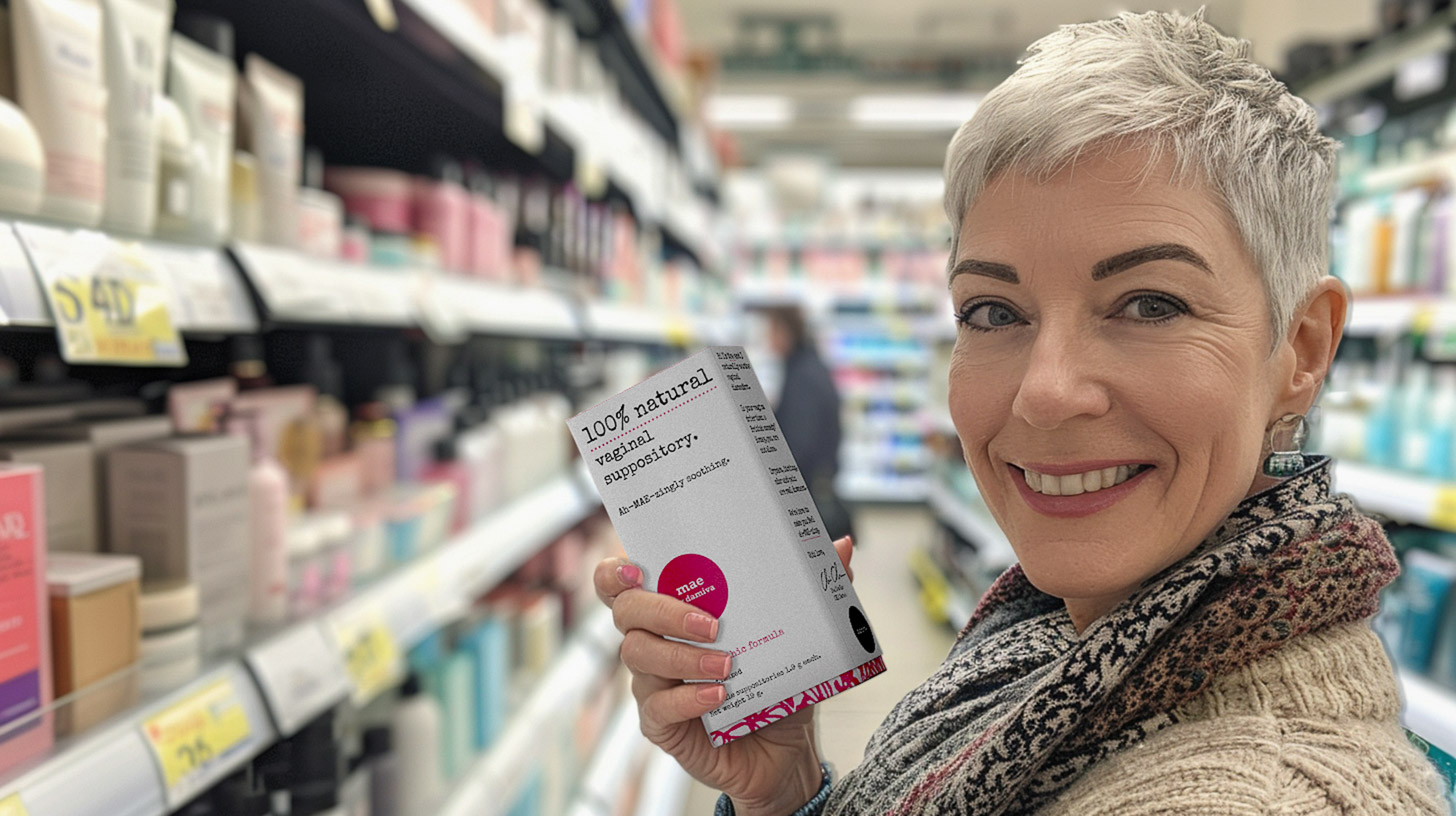Introduction
Understanding Menopause and Libido
Menopause is a natural biological process that marks the end of a woman’s reproductive years, typically occurring in the late 40s or early 50s. It is characterized by the cessation of menstruation and a decline in the production of hormones such as estrogen and progesterone. This hormonal shift can lead to various physical and emotional changes, including alterations in sexual desire, or libido. While some women experience a decrease in libido, others may notice no change or even an increase in sexual interest. It’s crucial to recognize that menopause and libido are intertwined, and the experiences are highly individualized.
The Importance of Addressing Sexual Health
Sexual health is a vital aspect of overall well-being, yet it is often overlooked or dismissed, especially during menopause. Addressing sexual health is important for maintaining intimacy, self-esteem, and quality of life. Open discussions about sexual desire and challenges associated with menopause can lead to better understanding, relief of symptoms, and improved sexual experiences. It is essential to break the silence surrounding this topic and to acknowledge that sexual well-being is a legitimate concern for menopausal women.
Objective of the Article
The objective of this article is to shed light on the complex relationship between libido and menopause, dispel common myths about frigidity, and provide insights into managing changes in sexual desire. By exploring the scientific underpinnings, addressing psychological and emotional factors, and offering practical solutions, this article aims to empower women to navigate this transition with confidence and to seek the support they need. Ultimately, we strive to foster an open dialogue that normalizes sexual health discussions and encourages further research in this field.
The Science of Menopause and Libido
Hormonal Changes and Their Impact on Libido
Menopause marks a significant change in a woman’s life, often characterized by a decline in the production of hormones, particularly estrogen and progesterone. These hormonal fluctuations can have a profound effect on libido. Estrogen, for instance, plays a crucial role in sexual health and arousal; its reduction can lead to diminished blood flow to the pelvic region, affecting both physical arousal and desire. Progesterone, while less directly linked to sexual function, can influence mood and energy levels, indirectly impacting a woman’s interest in sexual activity.
Physical Symptoms Affecting Sexual Desire
Menopause can bring about various physical symptoms that may deter sexual activity. Vaginal dryness and atrophy, resulting from decreased estrogen, can make intercourse uncomfortable or even painful, understandably leading to a lower sex drive. Additionally, other menopausal symptoms such as hot flashes, night sweats, and sleep disturbances can contribute to fatigue and irritability, further diminishing sexual interest.
Psychological Factors and Emotional Well-being
The psychological impact of menopause on libido should not be underestimated. Fluctuating hormones can lead to mood swings, anxiety, and depression, which can all take a toll on a woman’s sexual desire. Moreover, the emotional response to the physical changes of menopause, such as a perceived loss of fertility or youth, can affect self-esteem and body image, potentially leading to a decreased interest in sex. It is essential to recognize that these psychological factors are as significant as the physical ones and can profoundly influence a woman’s libido during menopause.
Common Myths and Misconceptions
Debunking the Myth of Inevitable Frigidity
One of the most pervasive myths surrounding menopause is the belief that a decline in sexual desire, or frigidity, is inevitable. This misconception can lead to a fatalistic attitude among women, who may accept a waning libido as a natural consequence of aging. However, research shows that menopause does not uniformly result in a loss of libido. While hormonal changes can affect sexual desire, many women continue to enjoy an active and satisfying sex life well into their postmenopausal years. It’s crucial to understand that each woman’s experience is unique, and a decrease in libido is not a foregone conclusion.
Understanding the Variability of Sexual Experience
Sexual experience during and after menopause is highly variable and influenced by a multitude of factors beyond hormonal shifts. These include psychological well-being, the quality of a woman’s relationships, her physical health, and her personal attitudes towards sex. It’s important to recognize that libido is not a static trait but a dynamic one that can fluctuate based on life circumstances and overall health. By acknowledging this variability, women can better understand their own sexual health and seek appropriate solutions when challenges arise.
The Role of Communication and Education
Open communication and education play pivotal roles in dispelling myths about menopause and sexual health. Many women may not feel comfortable discussing their sexual concerns with partners or healthcare providers due to societal stigma or embarrassment. This silence can perpetuate misinformation and prevent women from accessing the support and resources they need. Encouraging dialogue about menopause and its impact on libido can help women feel more empowered and informed. Additionally, educating both women and their partners about the changes that occur during this life stage can foster understanding and patience, leading to stronger, more intimate relationships.
Natural Solutions for Enhancing Libido
Dietary Adjustments and Nutritional Support
Altering one’s diet can play a significant role in enhancing libido, especially during menopause. Foods rich in phytoestrogens, such as soy products, can provide some estrogenic effects, which may help balance hormone levels and alleviate some menopausal symptoms. Incorporating foods high in vitamins B and E, zinc, and magnesium can also support sexual health. For instance, leafy greens and whole grains are excellent sources of these nutrients. Additionally, omega-3 fatty acids found in fish like salmon and mackerel can improve circulation and heart health, potentially boosting sexual function.
Herbal Remedies and Supplements
Several herbal remedies have been traditionally used to support sexual health. Herbs such as ginseng and maca root are believed to have adaptogenic properties that can enhance energy and reduce stress, indirectly supporting libido. Black cohosh and red clover are other supplements that may help manage menopausal symptoms, including vaginal dryness and hot flashes, thereby improving sexual comfort and desire. However, it’s crucial to consult with a healthcare provider before starting any herbal regimen, as some herbs can interact with medications or have side effects.
Lifestyle Changes and Stress Management
Stress is a known libido killer. Engaging in regular stress-reducing activities such as yoga, meditation, or deep-breathing exercises can help manage stress levels and improve overall well-being. Ensuring adequate sleep is also vital, as fatigue can significantly dampen sexual desire. Creating a relaxing bedtime routine and maintaining a comfortable sleep environment can contribute to better sleep quality and, in turn, a healthier libido.
Physical Exercises and Pelvic Health
Regular physical activity can increase stamina, improve body image, and elevate mood, all of which can contribute to a healthier libido. Pelvic floor exercises, such as Kegel exercises, can enhance pelvic health and increase blood flow to the genital area, potentially heightening sexual sensation and arousal. Engaging in these exercises regularly can also help with urinary incontinence, a common issue during menopause that can affect sexual confidence and desire.
By addressing these areas, women can take proactive steps to enhance their libido and improve their sexual health during menopause. It’s important to remember that each woman’s experience is unique, and what works for one may not work for another. Open communication with a healthcare provider can help tailor these natural solutions to individual needs and preferences.
Emotional Support and Relationship Dynamics
Navigating Changes in Intimacy
Menopause can herald a time of significant change in a woman’s life, not least in the realm of sexual intimacy. As the body undergoes hormonal shifts, the physical and emotional landscape of intimacy may alter. It’s crucial for both partners to understand that changes in libido are a common part of this transition. Open communication about these changes can help couples navigate this new terrain. Exploring new forms of intimacy, whether physical or emotional, can also be a way to maintain closeness and connection during this time of change.
The Importance of Partner Support and Understanding
Partner support is paramount when it comes to managing the effects of menopause on libido. A partner’s empathy and willingness to understand can make a significant difference in a woman’s experience of menopause. It’s essential for partners to educate themselves about menopause and its impact on sexual health. By doing so, they can become allies in finding solutions that work for both parties, rather than sources of pressure or frustration. This support can take many forms, from attending medical appointments together to simply listening and offering emotional support.
Seeking Professional Help When Needed
There are times when the challenges of menopause and libido may require professional intervention. Couples should not hesitate to seek the help of therapists or counselors who specialize in sexual health and menopause. These professionals can provide strategies to manage physical symptoms, address psychological factors, and improve communication between partners. Additionally, they can offer guidance on how to rebuild intimacy and explore new ways to connect sexually and emotionally. Seeking help is a proactive step towards maintaining a healthy and fulfilling sexual relationship during and after the menopause transition.

⭐️⭐️⭐️⭐️⭐️ “My biggest symptoms are GSM, and because of Mae, they are mostly addressed. I have lived Mae for almost 7 years, and I endorse it all the time.” Margaret C., Damiva Mae Customer
⭐️⭐️⭐️⭐️⭐️ “I’m in my 60’s and post menopause. My doctor recommended I try Damiva MAE, after taking me off hormones (due to developing cysts). I LOVE it. All natural, no hormones, Great vaginal moisturizer. Easy to insert and pleasant smell. So Thankful for MAE.” Paula, Damiva Mae Customer
Case Studies and Personal Stories
Real-life Experiences of Overcoming Libido Challenges
Menopause is a significant life transition that can affect a woman’s sexual health, but it is not an insurmountable challenge. Take the story of Maria, a 52-year-old who began experiencing a decline in her libido as she entered perimenopause. Initially, Maria felt isolated and confused by the changes in her body. However, after seeking support from a women’s health group, she learned that her experience was not uncommon. Through open discussions and sharing personal stories, Maria realized that communication with her partner was key. They worked together to explore new forms of intimacy that accommodated her changing body, finding that emotional closeness often led to a renewed interest in physical intimacy.
Another case is Susan, who struggled with vaginal dryness, a common menopausal symptom that affected her sexual desire. She was hesitant to seek help, but after confiding in a friend, she was encouraged to consult her healthcare provider. Susan was prescribed a local estrogen therapy, which alleviated the dryness and discomfort. With this physical barrier removed, Susan’s libido gradually improved, and she was able to enjoy a fulfilling sex life once again.
Success Stories of Natural Interventions
Natural interventions can also play a significant role in managing libido challenges during menopause. Emma, a 49-year-old yoga instructor, found that her regular practice of yoga and meditation helped her manage stress and maintain a positive body image, both of which contributed to a healthy libido. Additionally, she incorporated phytoestrogen-rich foods into her diet, which some studies suggest may help balance hormone levels and alleviate menopausal symptoms.
Linda’s success story involves herbal remedies. After experiencing a noticeable drop in her sexual desire, Linda researched natural supplements and decided to try a blend containing ginseng and maca root, both of which have reputations as libido enhancers. Over time, Linda noticed a gradual improvement in her energy levels and desire. She credits a combination of the herbal supplement, regular exercise, and open communication with her partner for the positive change.
These personal stories highlight the diversity of experiences women have with libido during menopause. They also underscore the importance of seeking solutions that work for each individual, whether through lifestyle changes, natural remedies, or medical interventions. By sharing these stories, we aim to break the ice on the topic of frigidity and encourage women to explore the various avenues available to support their sexual health during menopause.
Conclusion
Empowering Women to Take Charge of Their Sexual Health
As we conclude this exploration into the complex relationship between libido and menopause, it is paramount to emphasize the power that knowledge and proactive health management hold. Women are encouraged to take charge of their sexual health by seeking accurate information, engaging in open conversations with healthcare providers, and exploring various strategies that may enhance their sexual well-being. Empowerment comes from understanding that changes in libido are not a sign of personal failure or a loss of femininity, but rather a natural part of life’s journey that can be navigated with grace and self-compassion.
Encouraging Open Dialogue and Continued Research
The silence surrounding menopause and sexual health has persisted for too long. Breaking this silence requires a cultural shift towards open dialogue, where the experiences of menopausal women are neither stigmatized nor ignored. Continued research is essential to dispel myths, develop effective interventions, and provide women with the resources they need to maintain a fulfilling sexual life. By fostering an environment where discussions about menopause and libido are normalized, society can better support women through this transition.
Final Thoughts and Resources for Further Support
In the journey to maintain and enhance libido during menopause, no woman should feel alone. There are abundant resources available, from support groups and educational materials to professional counseling and medical advice. Women are encouraged to explore these options and find what works best for their unique situation. Remember, sexual health is an integral part of overall well-being, and it deserves attention and care.
For further support, consider the following resources:
- National Menopause Foundation: Provides education and support for women in menopause.
- The North American Menopause Society: Offers a wealth of information on menopause-related topics.
- American Sexual Health Association: A resource for sexual health information and support.
- Local support groups: Many communities offer groups where women can share experiences and advice.
By embracing this chapter of life with knowledge, support, and a positive outlook, women can continue to experience pleasure, intimacy, and vitality for years to come.










